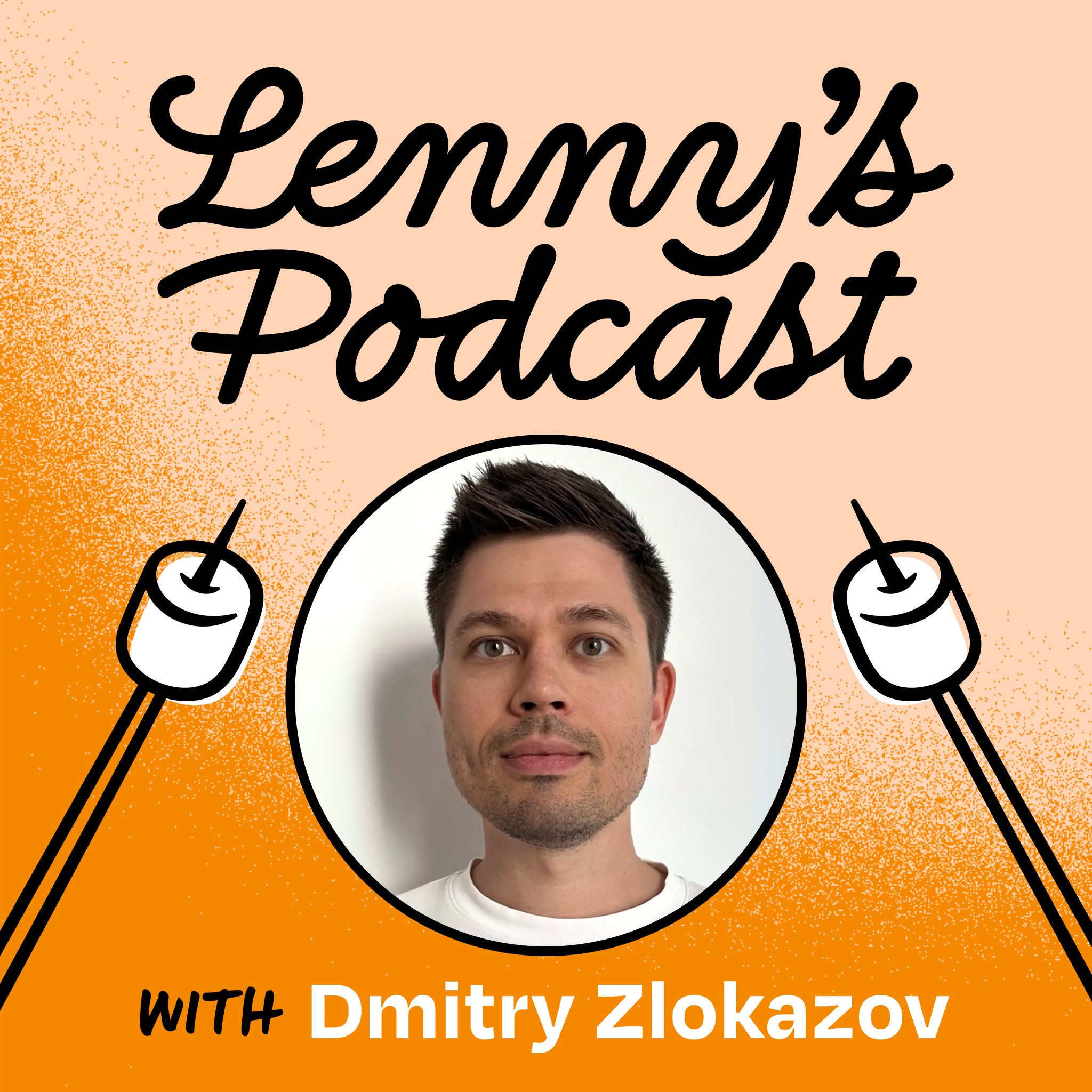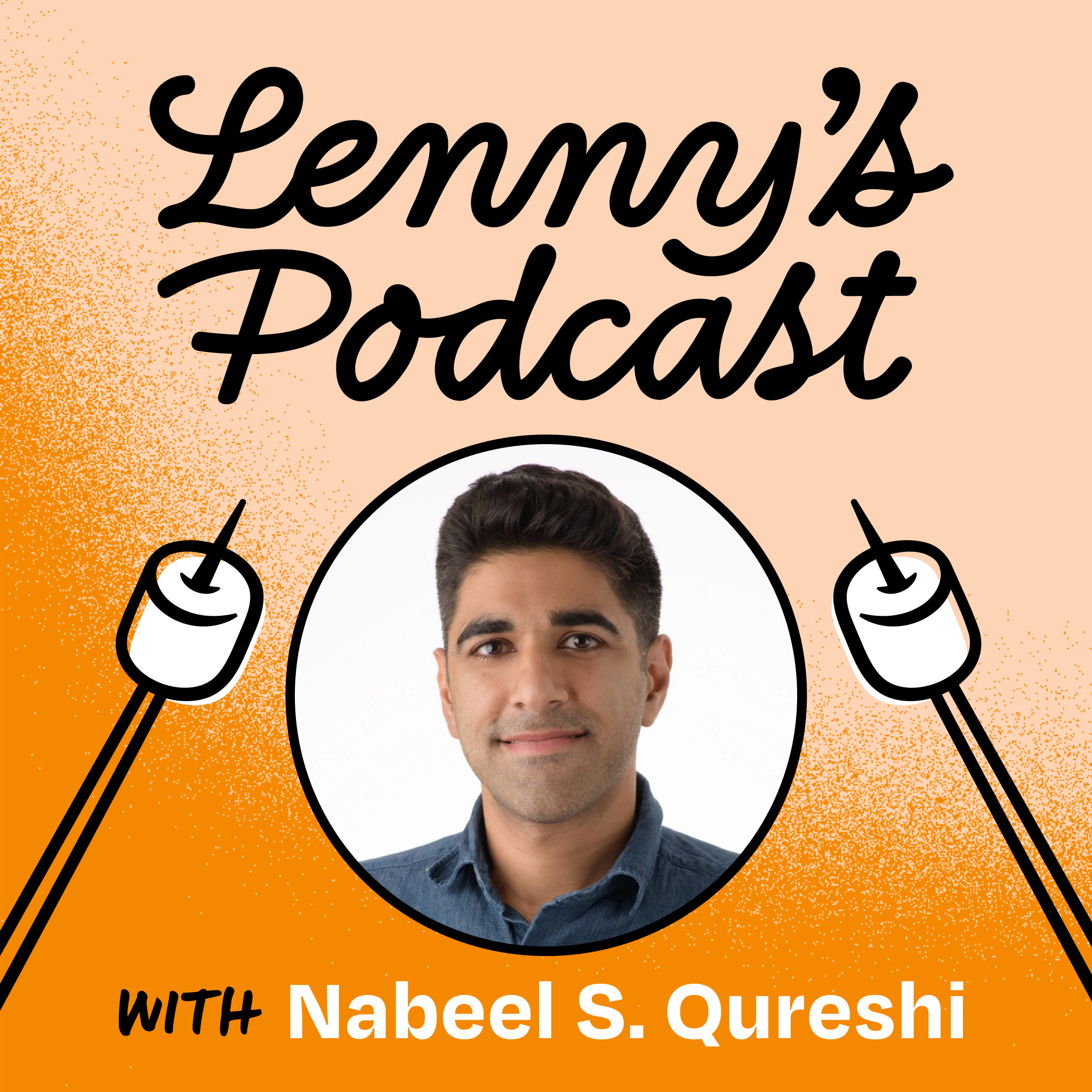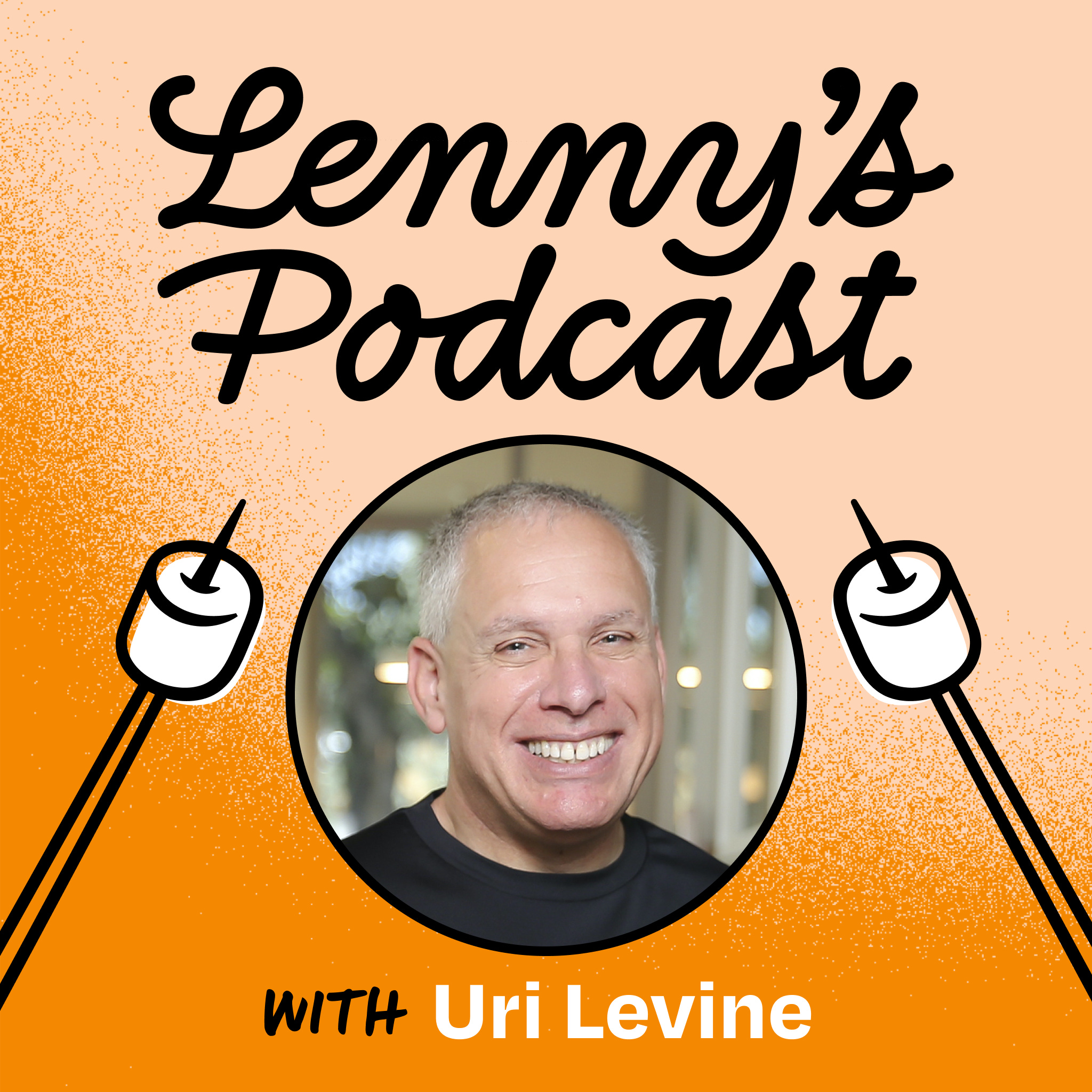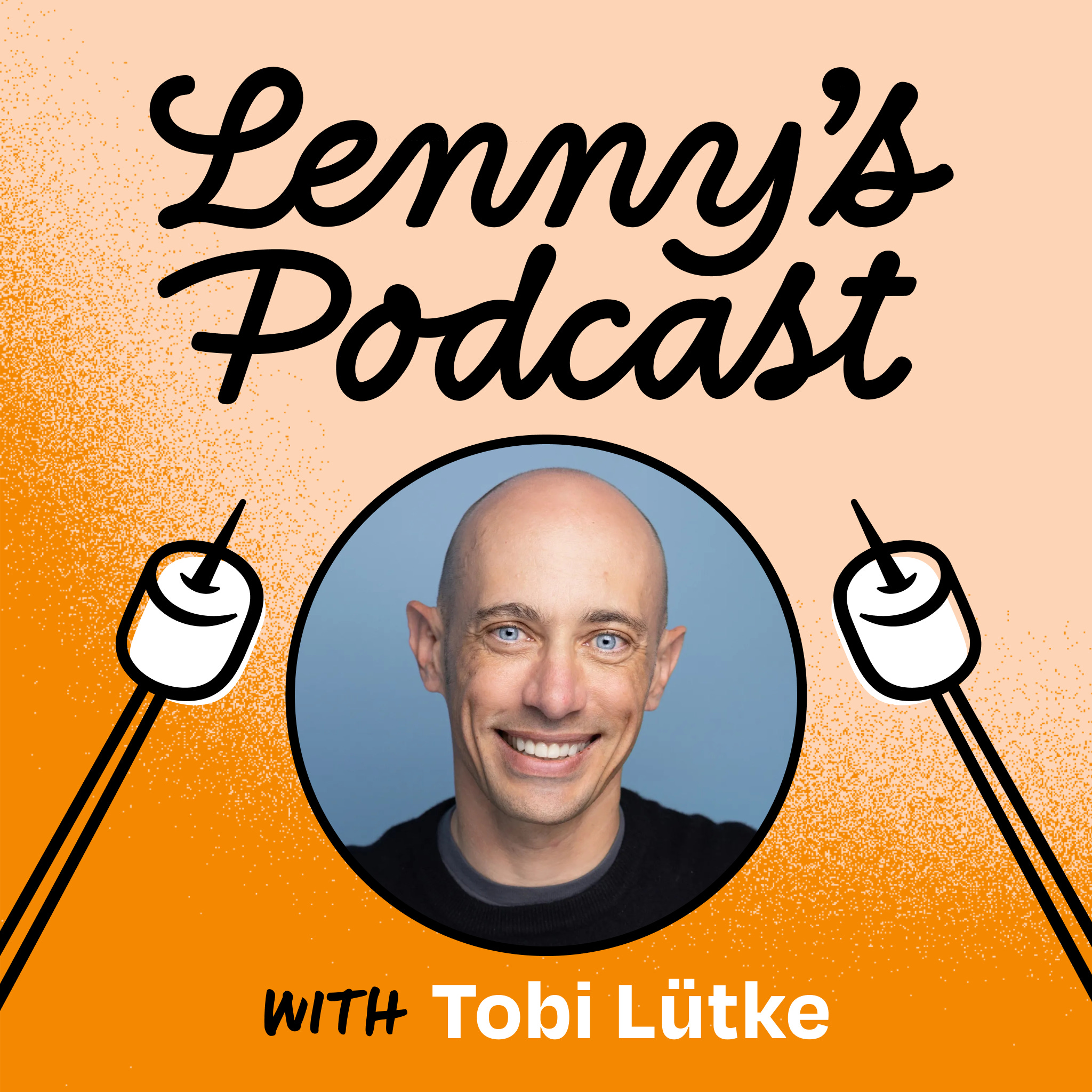
August 18, 2024 • 1hr 28min
Unorthodox PM wisdom: Automating user insights, unselling job candidates, logging every decision, more | Kevin Yien (Stripe, Square, Mutiny)
Lenny's Podcast: Product | Growth | Career
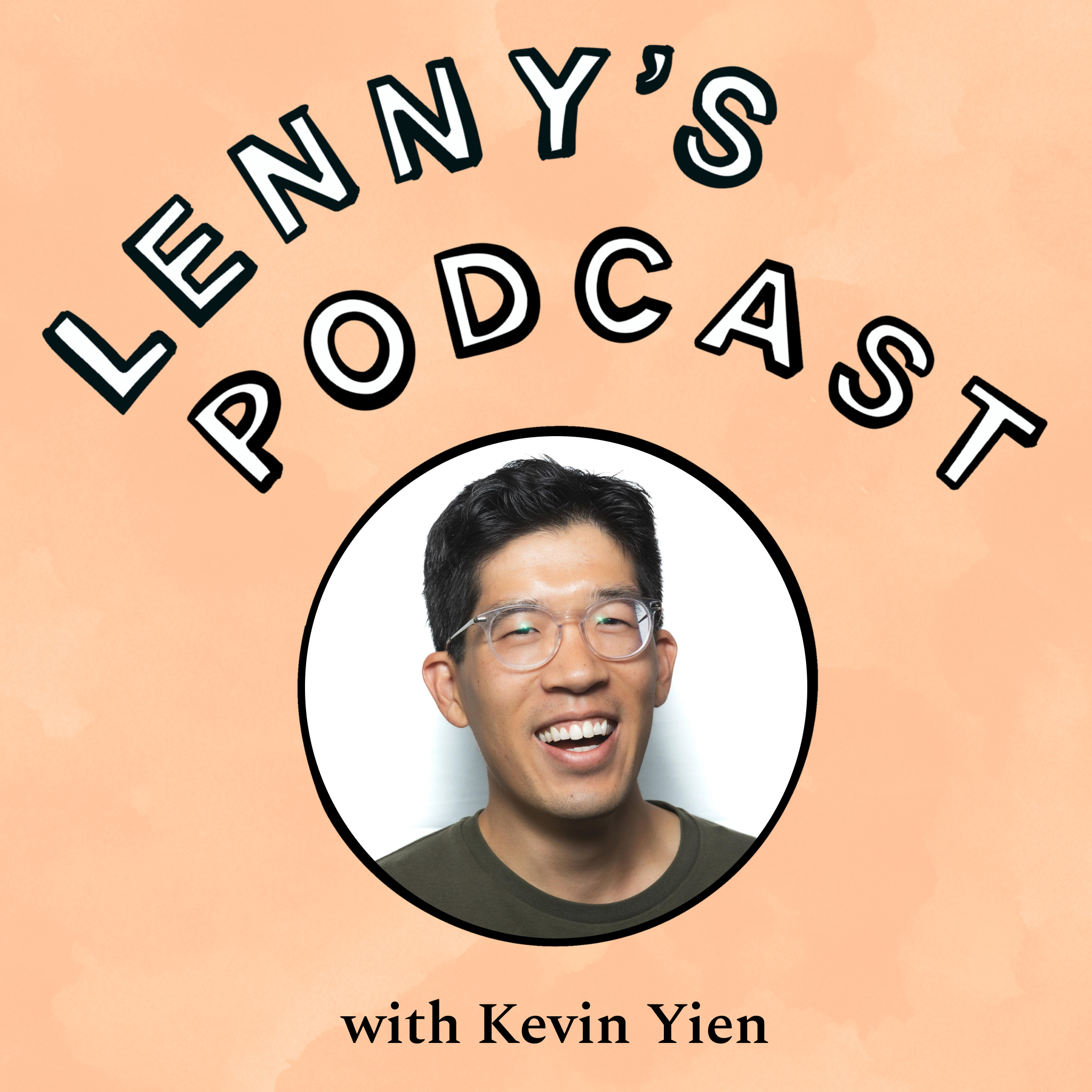
Key Takeaways
- Don't go straight into product management - Start in engineering, design, or sales to gain foundational experience before becoming a PM
- Great PMs need to be great writers - Writing is crucial for creating clarity at scale, both internally and externally
- Draw the perimeter for your team - PMs should define constraints and boundaries to allow engineers and designers to be creative within that space
- Automate user research - Use tools like Gong and Zapier to automatically schedule customer conversations based on key terms
- Keep a decision log - Document your product decisions and rationale to improve your decision-making over time
- Use the "unsell email" technique for hiring - Be upfront about challenges to ensure candidates are a good long-term fit
- AI will have profound impacts we can't yet imagine - The next generation will view AI tools as naturally as we view crayons
- Failure can be an opportunity for growth - Use setbacks to reevaluate your identity and find environments where you can thrive
Introduction
In this episode of Lenny's Podcast, host Lenny Rachitsky interviews Kevin Yien, who leads product for merchant experiences at Stripe. Kevin shares insights from his career journey, including roles at Square and Mutiny, and offers unique perspectives on product management, hiring, and career development.
Topics Discussed
Getting Started in Product Management (3:45)
Kevin advises against going straight into product management, instead recommending that aspiring PMs start in engineering, design, or sales. He explains:
"When you're just getting started with a new product, the people that should be doing that are the people who are building it. Right? That's an engineer, that's a designer, that's a salesperson or a support person. They're the front line of the smallest loop possible to get something going."
- Starting in these roles provides a foundation for understanding how products are built
- It allows you to develop a unique perspective before taking on a PM role
- Not every team needs a dedicated PM, but PM activities need to happen regardless
The Importance of Writing Skills for PMs (12:47)
Kevin emphasizes that great PMs need to be great writers, as writing is crucial for creating clarity at scale. He states:
"Writing is clarity at scale. And a key component to a PM's job is creating clarity both internally and externally."
- Internal writing: Clear PRDs and articulating ideas well
- External writing: Compelling messaging in the voice of the customer
- If you can't sell or support your own product, it's hard to trust you to build the product
Becoming a Better Writer (15:06)
To improve writing skills, Kevin recommends:
- Consume as much good writing as possible
- Read writing that compels you to action, not just PM artifacts
- Study succinct and clear writers like Paul Graham
- Pay attention to cadence in your writing to keep readers engaged
The PM's Role with Engineering and Design (19:10)
Kevin introduces the concept of "drawing the perimeter" for your team:
"PM should be doing everything in their power to draw the perimeter of the space, of the problem space and it's within that engineers, designers, everyone else that you're working with, they can go as crazy as they want, push up against the bounds and fill the box to its maximum capacity."
- Define constraints to allow for creative solutions within boundaries
- Be involved in details, even seemingly small ones like animation timing
- Create overlapping responsibilities between product, engineering, and design
Drawing the Perimeter for Your Team (28:41)
Kevin elaborates on how to create constraints for your team:
- Clearly define the user segment and their specific role
- Identify the core jobs to be done
- Specify platform requirements (desktop, mobile, etc.)
- Establish key principles or trade-offs (e.g., speed vs. data consistency)
Feedback Tips (31:37)
Kevin shares a "tuning fork" approach to getting feedback:
- Present a concrete draft for people to react to, rather than asking open-ended questions
- Use silent reading sessions for document review
- Schedule dedicated time for focused feedback
Decision Logs and Product Sense (35:13)
Kevin advocates for keeping a decision log to improve product sense:
"We all talk about product sense. To me it's just a fancy way of saying you can make good decisions with insufficient data. And PM's need as many reps as possible in making decisions, documenting the rationale behind those decisions, and then, crucially, seeing the outcome of them."
- Document decisions you make in your role
- Analyze decisions made by other teams or companies
- Review outcomes over time to improve decision-making skills
Unorthodox Hiring Strategies (45:36)
Kevin introduces his "unsell email" technique for hiring:
"When you get to offer stage, I send an email and I say all the terrible things that are probably going to reinforce their fears. If you can tell them that up front and they can read that whole email and still be equally excited to join you find yourself a plus hire."
- Be upfront about challenges and potential issues
- Collect concerns and anxieties throughout the interview process
- Send a candid email at the offer stage to ensure long-term fit
- Be willing to lose candidates who aren't truly aligned
Automating User Research (54:01)
Kevin shares strategies for automating user research:
- Use tools like userinterview.com for B2B customer interviews
- Leverage sales calls as a research opportunity
- Set up Gong alerts for key terms in customer conversations
- Use Zapier to automatically schedule follow-up conversations
"Your sales team is a research team and if you don't view them that way you are missing out on half the value."
AI in Everyday Life (1:02:27)
Kevin shares a powerful story about his daughter's experience with AI image generation:
"The concept of these image generation models is the same as a crayon to her. Like there is no difference in her mind. And that is an insane change that I can't even comprehend."
- The next generation will view AI tools as naturally as we view traditional tools
- We can't yet imagine the full impact of AI on future product development
- Parents have a unique opportunity to observe how children adapt to these technologies
Lessons from Failure (1:06:05)
Kevin shares a personal story of failure and growth after being laid off:
- Separate your identity from your job title or role
- Recognize the difference between personal competence and business needs
- Use setbacks as opportunities to reevaluate and find better-fitting environments
- Focus on what you can control and change moving forward
"There is a difference between you not being good at something and a business or company not needing that thing at a particular moment in time, or you being very good at something, but not in the way that a company needs."
Conclusion
Kevin Yien's insights offer valuable lessons for product managers and aspiring PMs alike. His emphasis on foundational experience, writing skills, and continuous learning through decision-making provides a roadmap for career growth. The innovative approaches to hiring and user research demonstrate the importance of thinking creatively about standard processes. Finally, Kevin's reflections on AI and failure highlight the need for adaptability and resilience in the ever-changing tech landscape.
By implementing these strategies and maintaining a growth mindset, product managers can enhance their skills, build better products, and navigate the challenges of their careers more effectively.
